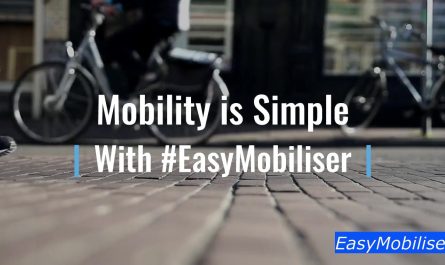In the world of fashion, image often speaks louder than fabric. Many young people today are drawn to brands not only for what they make, but for what they represent. Aesthetics, storytelling, and social media presence shape our perception of value—and in many ways, that’s natural. Fashion is expression. It’s identity. It’s culture.
But behind the surface lies a quieter truth which we have discussed in the previous blogposts (see below): much of what we buy is neither well-made nor responsibly produced.
High price tags do not guarantee quality. Buzzwords like “conscious” or “eco” are used freely, with little oversight. Certifications—like GOTS, OEKO-TEX, or Fair Wear—are still the exception, not the norm. And yet, we rarely ask: What am I really paying for?
Too often, the answer is marketing.
In Switzerland, this lack of awareness runs deep. Among younger generations, there’s limited education around how clothing is made, what it does to the planet, or how it might affect our own health. And when sustainability does come up, it tends to come with baggage: a lingering image of shapeless beige basics, or outfits that feel more like statements than style.
That reputation is partially true—but it’s also no longer the full picture.
Today, a new generation of European brands is proving that sustainability and style can—and should—go hand in hand. These labels are certified, ethically made, and designed to be worn and loved, whether you’re heading to class, out with friends, or dressing up for something more.
In this guide, we’re highlighting the brands that are doing it right:
– Labels that are transparent about their materials and production
– Clothes that feel good and look good
– And most importantly, options that speak your language—without compromising your values

Certified and Stylish: Brands That Get It Right
If you’re ready to shift your shopping habits—but don’t want to compromise on design—this list is for you. These brands are not only certified by trusted sustainability standards (like GOTS, OEKO-TEX, or Fair Wear Foundation), they also understand how to create clothes people actually want to wear. From everyday basics to bold going-out looks, these are labels that combine ethics with aesthetics.
Fully certified and fashion-forward:
-
Armed Angels (DE) – A go-to for clean design, durable denim, and certified materials across the board.
-
Closed (DE) – Premium feel, timeless silhouettes, and strong environmental standards behind the scenes.
-
Róurí (ES) – A newer player blending Swiss minimalist design with certified materials and thoughtful production.
-
OMNES (GB) – Affordable and fun, OMNES offers playful pieces with verified sustainable fabrics.
-
Jan n June (DE) – Known for their transparency, GOTS certification, and effortlessly modern styles.
-
GoodOnYou (DE) – A growing label with clear standards and a clean, contemporary look.
-
Thinking MU (ES) – Bold, graphic, creative—and backed by serious GOTS-certified sourcing.
-
NIKIN (CH) – A Swiss favourite: every item plants a tree, and the brand uses GOTS cotton and OEKO-TEX materials.
-
Jungle Folk (CH) – High-end Swiss design, fair production, and small-batch artisan craftsmanship.
-
OLOW (FR) – Playful menswear with artist collabs and full certifications.
-
People Tree (UK) – A pioneer in sustainable fashion with consistently certified collections.
-
Oddli (US) – Upcycled basics with personality, youth-focused branding, and a fresh aesthetic.
-
Uncle Studio (CN) – Based in China, but refreshingly transparent, slow-produced, and certified where it counts.
Sustainable—but Not Fully Certified
These brands make an effort—often using organic or recycled fabrics and ethical production—but fall short of full certification across their entire range. That doesn’t mean they’re off the table, but check individual pieces if you’re trying to shop consciously.
-
IDAH (UK) – Trend-led, minimalist collections with some certified materials, but no full brand transparency.
-
Andiata (FI) – Scandinavian elegance with improved supply chain awareness, but no public certifications.
-
Reformation (US) – Stylish and highly marketed as sustainable, with some use of certified fabrics—though it remains opaque in certain areas.
Mixed Recommendations: Trendy, But Not Transparent
These brands are popular for a reason: their marketing is on point, their cuts are flattering, and their aesthetic is social-media ready. But when it comes to sustainability, they’re inconsistent at best. Some pieces might use better materials or carry certifications like GOTS—but the overall lack of transparency, supply chain oversight, and frequent greenwashing makes them harder to recommend.
-
Sézane (FR) – Some garments (like cotton blouses) are GOTS-certified, but there’s little clarity across the full collection.
-
& Other Stories – Occasionally uses responsible materials, but as part of the H&M Group, transparency and ethical sourcing remain weak points.
-
COS – High-quality finishes and recycled content, but supply chain data and labor practices remain largely undisclosed.
-
Frankie Shop – Aesthetically strong, sustainability claims are vague and unsupported.
-
Sandro – Premium price tags with minimal sustainability efforts and no meaningful certifications.
What to Avoid: Low Prices, High Cost
Some brands have built entire empires on affordability, speed, and trend turnover. But behind the ultra-low prices are serious environmental and social costs—from exploitative labor practices to enormous textile waste and chemical pollution.
These brands typically offer no supply chain transparency, no meaningful certifications, and often prioritize speed and profit over any environmental or ethical concern. Their sustainability claims, if present at all, tend to be vague or misleading.
These brands consistently receive poor sustainability ratings across independent evaluations like Good On You and Fashion Transparency Index:
-
Ultra-fast fashion and dropshipping giants:
Shein, Temu, AliExpress, FashionNova, Missguided, PrettyLittleThing -
Mainstream high street names with low transparency and high volume:
Zara, H&M, Bershka, Stradivarius, Pull & Bear, New Yorker, Mango
While many of these brands have launched so-called “sustainable collections,” these often account for a tiny fraction of their output—with no real change in business model, production volume, or supply chain ethics. In short: don’t be fooled by green tags on a fast fashion machine.

Side Note: Tools to Shop Better (and Smarter)
If you’re not quite ready to give up your favorite brands—but still want to shop more sustainably—there are smart tools that can help you do better without doing more.
One example is the Zalando Sustainability Filter. It allows you to browse items based on sustainability criteria like organic or recycled materials. While it’s a helpful starting point, be cautious: many items still come from fast fashion brands, and the presence of “better materials” doesn’t mean the entire brand is ethical. Always check for real certifications like GOTS, OEKO-TEX, or Fair Wear Foundation.
Another tool worth exploring is ShopBeni.
This platform helps you find your favorite pieces—but secondhand. Just paste a product name or brand (like “Sandro blouse” or “COS trousers”), and ShopBeni will search multiple resale platforms for pre-loved versions.
It’s a great way to reduce waste, save money, and still get the style you love—especially if you’re shopping trend-led brands that aren’t fully sustainable.
Next Up:
In Blog Post #8, I take you on a sustainability hunt down Zurich Bahnhofstrasse—checking labels, calling out greenwashing, and highlighting the rare gems that actually walk the talk.
have a look at my TikToks:
Shops at Zurich Bahnhofstrasse
Catch up on previous posts:
3 Innovative Materials That Could Actually Change Fashion
How to Spot Greenwashing in Fashion
Polyester: Why Fashion’s Favorite Fabric Comes at a Cost
Cotton Confusion: How to Read the Labels Like a Pro
Not All Plant-Based Fabrics Are Sustainable—Here’s Why
What Are Your Clothes Really Made Of?
And if this gave you clarity, follow me on Instagram @labeldecoder for weekly facts, fabric deep-dives, and shopping tips.




